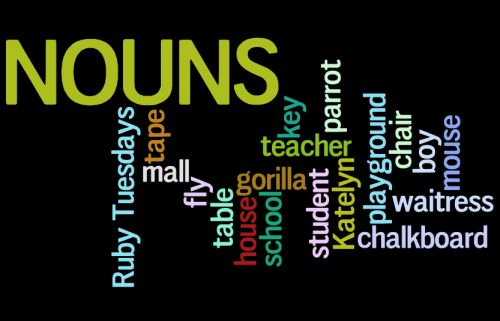Language is a powerful tool that allows us to communicate and express ourselves in a variety of ways. Among the various types of words that we use in our daily conversations, abstract nouns play a significant role in conveying emotions, ideas, concepts, and intangible qualities. In this blog, we will explore what abstract nouns are and abstract noun examples as well, how to use them in daily English speaking, and some examples of abstract nouns in sentences.
What is Abstract Noun & it’s examples?
An abstract noun is a word that refers to a concept, idea, quality, or state that cannot be seen, touched, smelled, tasted, or heard. They are intangible and do not have a physical existence. Some common examples of abstract nouns include love, happiness, beauty, honesty, courage, peace, and freedom.
Abstract nouns are a type of noun that describe concepts, ideas, emotions, qualities, and states that are intangible and cannot be perceived through the five senses. They are often used to express feelings, thoughts, and ideas that are difficult to describe using concrete nouns. Abstract nouns are typically not physical objects and cannot be seen, touched, tasted, smelled, or heard. Instead, they represent intangible qualities, such as love, hate, joy, sorrow, beauty, honesty, justice, freedom, and many more.
Abstract nouns can be formed from different word classes, such as adjectives, verbs, and even other abstract nouns. For example, the adjective ‘happy’ can be turned into the abstract noun ‘happiness,’ the verb ‘love’ can be turned into the abstract noun ‘love,’ and the abstract noun ‘honesty’ can be formed from the adjective ‘honest.’ Abstract nouns can also be formed by adding suffixes to nouns, such as ‘-ness,’ ‘-ity,’ ‘-tion,’ ‘-ment,’ and ‘-ship.’
Abstract nouns play an important role in our language, especially in literature and poetry, where they are used to create vivid and expressive imagery. They are also essential in philosophical and scientific discourse, where they help to describe complex ideas and concepts.
How to Use Abstract Nouns examples in Daily English Speaking?
Abstract nouns are often used to describe emotions, feelings, and concepts that are difficult to express using concrete nouns. They can help add depth and richness to your language, making your speech more meaningful and impactful. Here are a few ways you can use abstract nouns in your daily English speaking:
Expressing emotions: Use abstract nouns to describe how you feel, such as joy, sadness, anger, or fear.
Describing qualities: Use abstract nouns to describe the qualities of people or things, such as intelligence, kindness, or honesty.
Discussing concepts: Use abstract nouns to talk about ideas and concepts, such as democracy, justice, or freedom.
Abstract Noun Examples in Sentences
The below are the some abstract noun examples for your better understanding:
- Love is the most powerful force in the world.
- Honesty is always the best policy.
- Courage is the ability to face fear and danger.
- Freedom is a fundamental human right.
- Knowledge is power.
- Creativity is essential for innovation.
- Justice must be served for all.
- Peace is the absence of conflict and violence.
- Beauty lies in the eye of the beholder.
- Patience is a virtue.
How Helpful are Spoken English Classes Online?
Spoken English classes online can be highly beneficial for people who want to improve their communication skills. These classes provide a flexible and convenient way to learn English, allowing students to study at their own pace and from the comfort of their own homes. They also provide access to experienced and qualified English language instructors who can provide personalized feedback and support.
Also Read: How to be Fluent in English? Check Out the Best Cost-Effective Methods to Ace this Foreign Language
Fluent Life Fluent English Speaking Course Features
Fluent Life Fluent English Speaking Course is an online course that aims to help people become fluent in English. The course features the following:
Personalized learning: The course is tailored to the individual needs and goals of each student.
Interactive lessons: The course includes engaging and interactive lessons that help students learn in a fun and engaging way.
Expert instructors: The course is taught by experienced and qualified English language instructors who provide personalized feedback and support.
Flexible schedule: The course is designed to be flexible, allowing students to study at their own pace and on their own schedule.
Access to resources: The course provides access to a range of resources and materials that can help students improve their English skills.
Conclusion
Abstract nouns play an essential role in our language, helping us to express complex ideas, emotions, and concepts. By using abstract nouns in our daily English speaking, we can add depth and richness to our language, making our conversations more meaningful and impactful.
Spoken English classes online can be highly beneficial for people who want to improve their English skills, and courses like Fluent Life Fluent English Speaking Course provide a range of features and benefits to help students become fluent in English.
Also Read: Proper Uses of Simple Present Tense in English: A Guide to Better Grammar
FAQ’s
1. What is an abstract noun and its definition?
A: An abstract noun refers to a type of noun that denotes something intangible, such as emotions, qualities, concepts, or ideas. It represents things that cannot be perceived through the senses. For instance, words like ‘love,’ ‘happiness,’ ‘freedom,’ and ‘justice’ are all examples of abstract nouns.
2. Can you provide examples of abstract nouns in sentences?
A: Certainly! Here are a few examples of abstract nouns used in sentences:
- “Her kindness touched everyone in the room.”
- “Courage is necessary to overcome life’s challenges.”
- “The beauty of the sunset took my breath away.”
3. How do abstract nouns differ from concrete nouns?
A: Abstract nouns differ from concrete nouns in that they represent intangible ideas or concepts, whereas concrete nouns refer to physical, tangible objects that can be perceived by the senses. For example, ‘tree,’ ‘dog,’ or ‘book’ are concrete nouns because they are things that can be seen, touched, or experienced.
4. Why are abstract nouns important in language?
A: Abstract nouns are crucial in language as they help express emotions, qualities, and ideas, adding depth and meaning to our communication. They enable us to convey intangible concepts and philosophical thoughts in a more comprehensive manner.
5. Are there any exercises or activities to practice identifying abstract nouns?
A: Certainly! Engaging in exercises like sentence completion, fill-in-the-blank activities, or creating sentences with abstract nouns can significantly help in identifying and understanding abstract nouns more effectively. Online quizzes and worksheets focused on identifying abstract nouns can also aid in practice and mastery of this concept.






